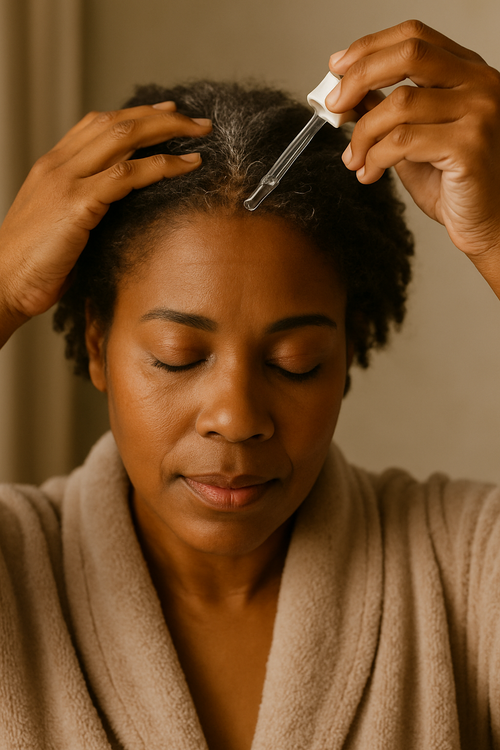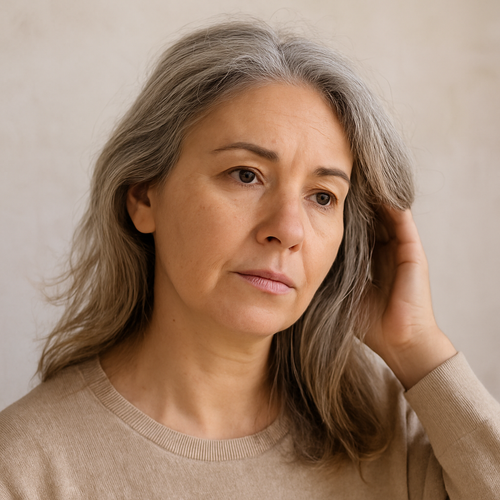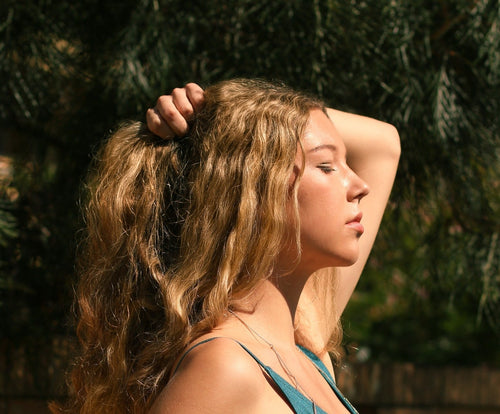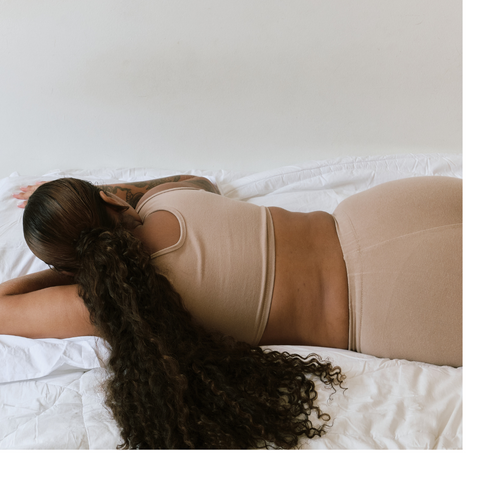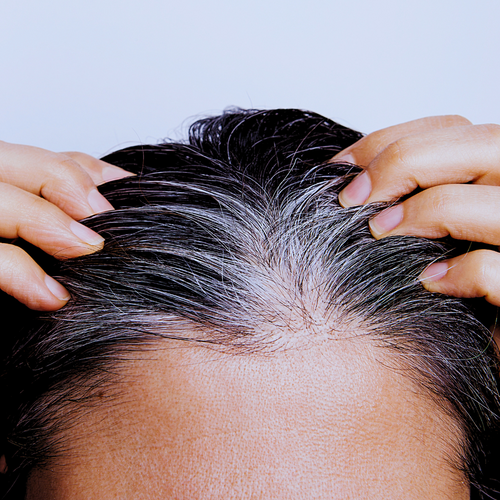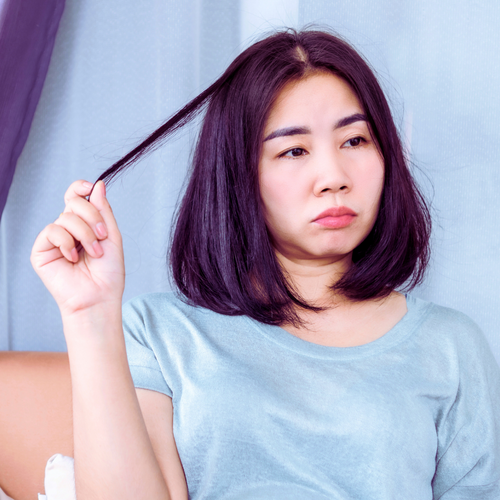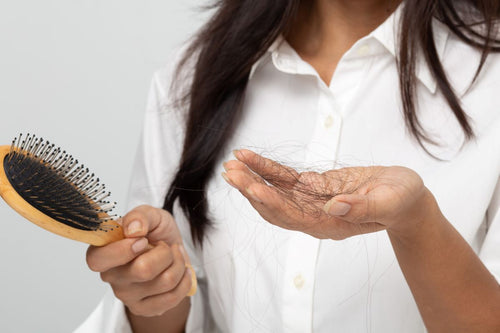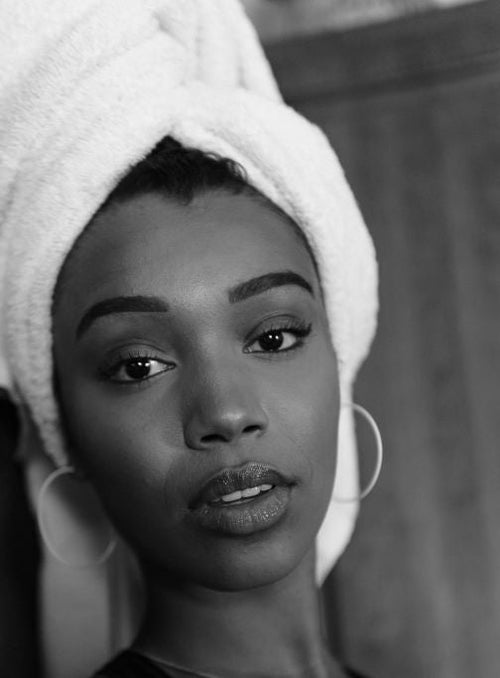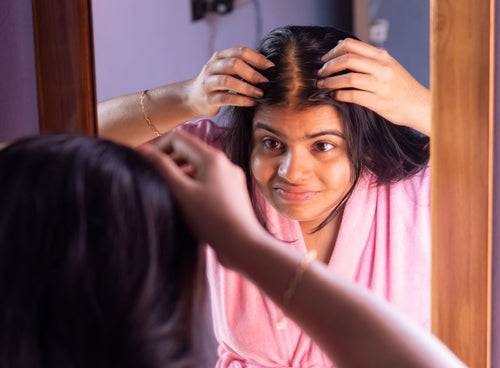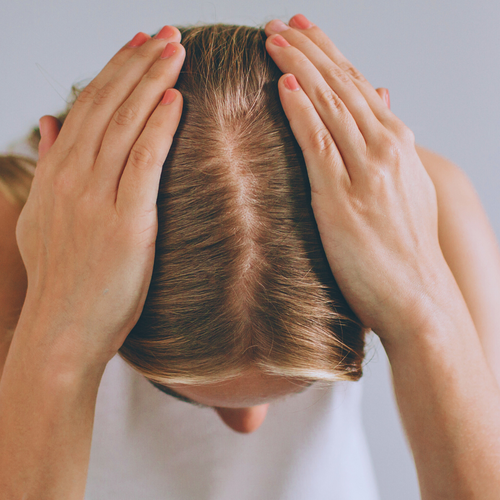Hormonal hair loss is a concern for many women, affecting their confidence and overall well-being. Understanding the causes of hormonal hair loss, and finding effective treatments, can empower you to take control of your hair health and your overall wellness. In this guide, we'll explore the hormonal hair loss, the hormones involved, and treatments that can help you regain your hair and confidence.
What is Hormonal Hair Loss?
Hormonal hair loss, sometimes referred to as androgenic alopecia, is a type of hair loss influenced by hormonal changes. It can affect women of all ages, from their late teens to their seventies. Hormonal imbalances disrupt the hair growth cycle, leading to thinning hair and increased shedding.
Telogen Effluvium
Telogen effluvium is another form of hair loss that can be triggered by hormonal changes, such as stress, childbirth, or other significant events. In this condition, a large number of hair follicles enter the telogen (resting) phase simultaneously, leading to increased shedding and noticeable thinning of hair. Telogen effluvium is often temporary, and the hair typically regrows once the underlying cause is addressed.
Symptoms of Hormonal Hair Loss
- Gradual thinning on the top of the head
- Widening part
- Receding hairline
- Increased hair shedding
Understanding the symptoms can help you identify hormonal hair loss early and seek appropriate treatment.

When Hormonal Hair Loss Occurs and What It Looks Like
Hormonal hair loss can occur at various stages of a woman's life, often correlating with significant hormonal changes.
Puberty
During puberty, androgen levels rise, which can sometimes trigger hair loss in girls who are genetically predisposed. The hair loss may appear as thinning around the crown of the head.
Pregnancy and Postpartum
Pregnancy is often associated with increased hair growth due to high estrogen levels. However, postpartum hair loss is common as hormone levels normalize. This type of hair loss usually occurs three months after childbirth and can last up to six months.
Menopause
Menopause brings significant hormonal changes, particularly a decrease in estrogen and progesterone levels. This can lead to more prominent thinning of the hair and an increase in hair shedding.
Stress and Illness
Chronic stress and illnesses like polycystic ovary syndrome (PCOS) can also disrupt hormonal balance, leading to hair loss. This type of hair loss is often diffuse, meaning it spreads across the entire scalp.
Hormones that Cause Hair Loss
Hormonal fluctuations play a significant role in hair loss. Here are the primary hormones involved:
Androgens
Androgens, including testosterone and dihydrotestosterone (DHT), are often linked to hair loss. DHT binds to hair follicles, causing them to shrink and produce thinner hair over time.
Estrogen
Estrogen helps maintain hair growth during the anagen (growth) phase. Declining estrogen levels, such as during menopause, can lead to hair thinning.
Thyroid Hormones
Thyroid imbalances, both hyperthyroidism and hypothyroidism, can disrupt the hair growth cycle and cause hair loss.
Effective Treatments for Thinning Hair
Treating hormonal hair loss involves a multi-faceted approach, often combining medical treatments, lifestyle adjustments, and natural supplements.
Hormone Therapy
Hormone therapy can help balance estrogen and progesterone levels, slowing hair loss and promoting regrowth. It's crucial to consult with a healthcare provider to determine the right therapy for you.
Medications
Medications like Minoxidil (Rogaine) can stimulate hair growth and slow hair loss. Finasteride is another option, though typically prescribed for men, it can be effective in certain women under medical supervision.
Lifestyle Adjustments
- Balanced Diet: Eating nutrient-rich foods supports overall health and hair growth. Focus on proteins, vitamins, and minerals.
- Stress Management: Chronic stress exacerbates hormonal imbalances. Practices like yoga, meditation, and exercise can help.
- Proper Hair Care: Gentle hair care practices, avoiding excessive heat and harsh chemicals, protect your hair.
Supplements for Hormonal Hair Loss
Natural supplements can support hair health by addressing hormonal imbalances and providing essential nutrients.
Biotin
Biotin, a B-vitamin, is crucial for hair health. It strengthens hair and nails, and a deficiency can lead to hair thinning.
Vitamin D
Vitamin D plays a role in the hair growth cycle, and low levels are associated with alopecia. Supplementing with vitamin D can help support hair growth.
Iron
Iron deficiency is a common cause of hair loss, especially in women. Ensuring adequate iron intake through diet or supplements can improve hair health.
Omega-3 Fatty Acids
Omega-3 fatty acids have anti-inflammatory properties and can promote a healthy scalp environment, supporting hair growth.
Adaptogens for Hormonal Balance
Adaptogens are natural substances that help the body adapt to stress and maintain hormonal balance. They are beneficial for hair health:
Ashwagandha
Ashwagandha reduces cortisol levels, promoting hair growth and overall health .
Rhodiola Rosea
Rhodiola Rosea supports adrenal function and helps balance stress hormones and improving hair health.
Holy Basil
Holy Basil helps regulate cortisol and improves overall well-being, which can positively impact hair health.
Our Adaptogenic Solutions
Our adaptogenic solutions are designed to help combat hormonal hair loss by reducing stress and promoting a healthy hormonal balance. Formulated with bioactive botanicals and adaptogens, our formulas nourish your hair from the inside out.
Frequently Asked Questions
What are the signs of hormonal hair loss?
Hormonal hair loss often causes thinning hair on the top of the head, a widening part, or increased shedding.
Can stress cause hormonal hair loss?
Yes, chronic stress can disrupt hormone levels, leading to hair loss. Managing stress is crucial for maintaining hair health.
How can adaptogens help with hair loss?
Adaptogens help balance hormones and reduce stress, which can improve hair health and reduce shedding.
Conclusion
Hormonal hair loss can be challenging, but understanding its causes and exploring various treatment options can help you regain control. Incorporating adaptogenic supplements and using targeted products like an adaptogenic scalp serum can support your journey to healthier, fuller hair. Always consult with healthcare professionals to tailor treatments to your specific needs.




